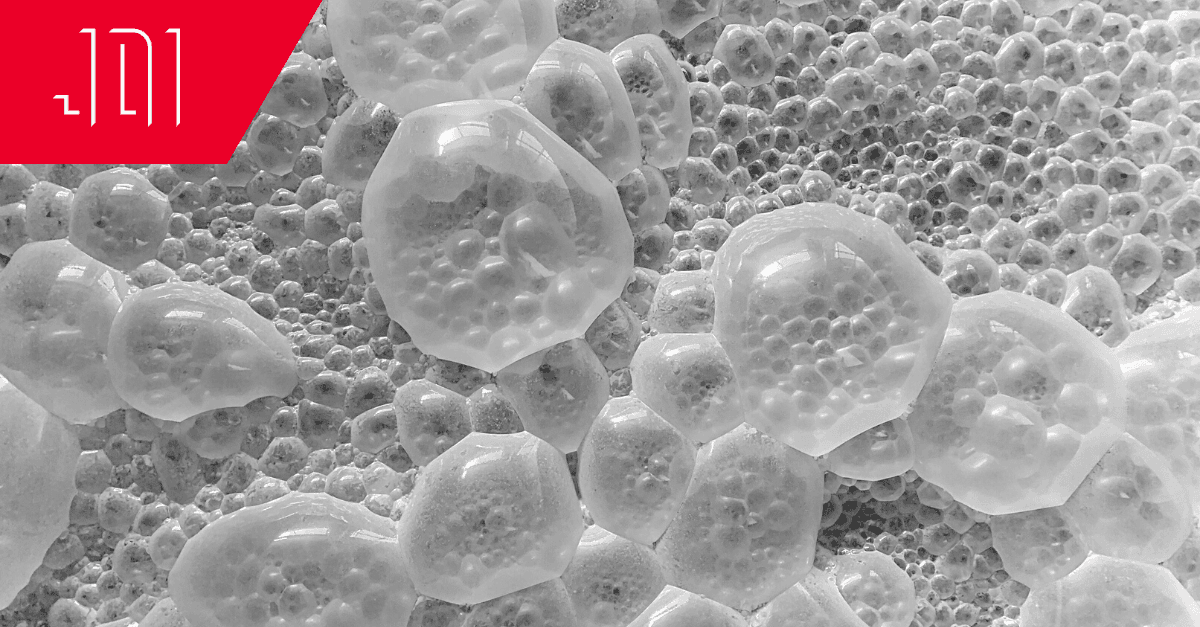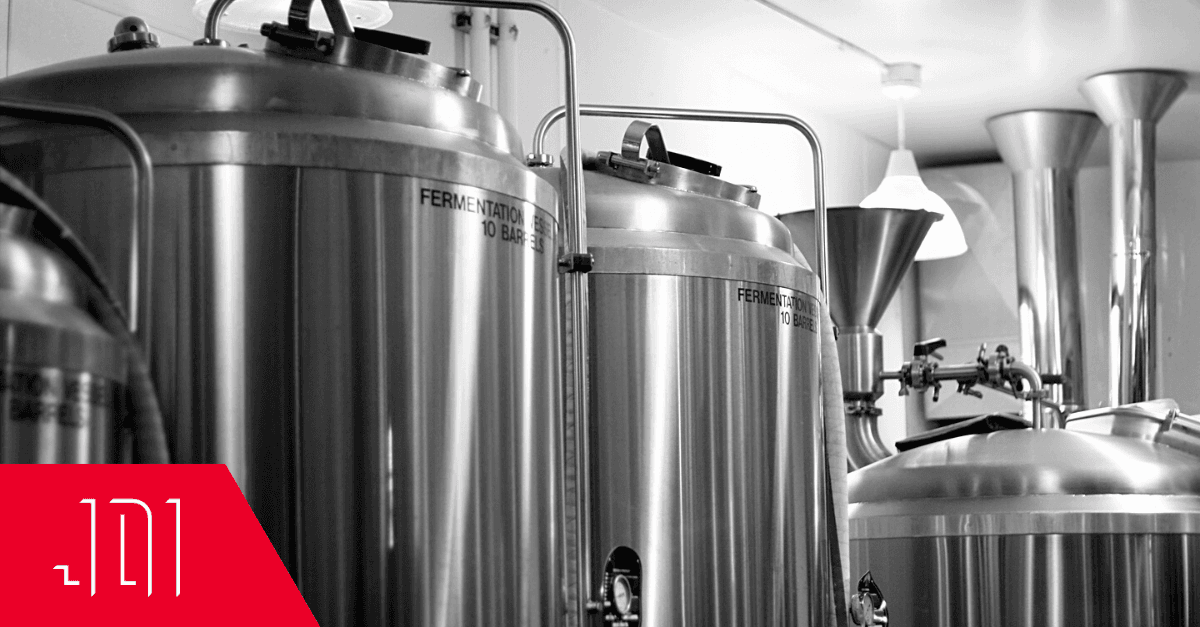The Rise of Bacterial Fermentation
Have you ever wondered what makes sourdough bread tangy, yogurt creamy, or kimchi funky? The secret sauce behind these beloved foods is the process of bacterial fermentation, a sustainable and environmentally-friendly way to produce a wide range of foods and flavors that are good for our taste buds and the planet. That same process, with the help of innovation and industrialization, is now being used to produce environmentally friendly and delicious alternatives to meat and dairy products.
Humans have used fermentation for ages, but only recently have we created technologies to take it to the next level. From reducing waste to developing new plant-based alternatives for staples of our everyday lives, bacterial fermentation is quickly becoming a food production superhero. Let's dive into this fascinating world of microorganisms and discover why they're the key to a sustainable future.
The power of bacterial fermentation stretches far beyond sauerkraut and beer. This microscopic army can reduce food waste and increase the shelf life of perishable foods. Imagine a world with savory, plant-based meat alternatives and dairy-free cheese that tastes like the dairy-full counterpart, all owing their deliciousness to these tiny little workers.
Several startups are at the forefront of using bacterial fermentation to create exciting new products. These innovators are pushing the boundaries of what's possible in sustainable food production. For instance, Change Foods uses precision fermentation to produce cheese, and The Better Meat Co. is focusing on fermented meats. There are also companies like Bond Pet Foods working on sustainable and nutritious pet food using bacterial fermentation.
As these companies demonstrate, the applications of bacterial fermentation are vast and varied. The potential of this technology to promote sustainability and revolutionize the food industry is immense, and this industry is just getting started.
It's Not Just About Pickles Anymore
Bacterial fermentation provides a viable solution to some of the most pressing environmental issues we face today, created by farm animal consumption and other traditional food products, like the overuse of natural resources and greenhouse gas emissions.
All this sounds great, but there are some challenges to tackle before mass-producing these products. We need to find ways to optimize the fermentation process for efficient and consistent production – it will be hard to get people to consume these products if their user experience, as well as the taste and quality, doesn't match their counterparts.
And even if those issues are fixed in the lab, there are some hurdles at the regulatory and production level that need to be taken into consideration. Starting and running a successful bacterial fermentation business requires understanding and following the rules set by government agencies around the world. These agencies focus on keeping food safe for the public, which may lead to close monitoring of bacterial fermentation products. Companies must follow these rules to avoid penalties, get necessary approval for sale and distribution, and keep a good public image. The regulatory landscape itself evolves over time, presenting new challenges for producers using fermentation..
Assuming that products make it through the long and arduous approval process at national levels, there are still more regulations enforced by local authorities. Rules can vary a lot between countries and regions, so bacterial fermentation businesses need to adapt their approach based on local requirements and agencies. This might mean changing the product recipe, how it's made, or even how it's advertised. Adapting to these differences helps companies have a better chance at success and avoid any roadblocks.
But perhaps the biggest challenge relies on making a product that is affordable and attractive to consumers. To drive costs down, companies must balance production costs, navigate scaling their processes, and target the right customers. This might be as simple as setting up additional bioreactors, but could send others back to the drawing board to find different ingredients, try new technical solutions, or make production more efficient. Research and development will be key to optimizing fermentation and lowering costs.Addressing these challenges is essential to unleashing bacterial fermentation's power in sustainable food production.
Bacteria: the Ultimate Flavor Wizards
Not all bacteria are created equal when it comes to making those unique, mouth-watering flavors, textures, and aromas. Different bacterial strains produce various features depending on factors like temperature, pH, and oxygen levels. It's like a microscopic cooking show where bacteria are the chefs, and the end product is a delightful dish with just the right amount of tang, creaminess, or funk.
Companies should keep in mind that people have different tastes when making fermented foods. Finding the right mix of bacteria that creates consistent flavor and texture is important to please picky eaters. Nobody wants a dull meat substitute or a cheese-like product that's chalky.
This is especially important In the world of packaged goods. A small change in taste might be okay at a restaurant, but part of the allure of a packaged food is the consistency: if their favorite store-bought product tastes different from one week to the next, it can drive consumers away. Since fermentation can be unpredictable, making sure products taste the same always presents its own unique challenge. Companies working with bacterial fermentation need to put effort into finding ways to make their production process consistent.
There’s Still Much to Learn
Bacterial fermentation, a time-honored process, has been instrumental in producing numerous food items, but there's still much more to learn. To meet the rising demand for sustainable and plant-based alternatives, continued research and innovation in bacterial fermentation are crucial. We need increased focus in creating cutting-edge techniques for eco-friendly food production and streamlining the fermentation process to make it efficient, reliable, and capable of developing novel flavors and textures.
Notable examples of this ongoing research include the Fermentation Science Institute at Southern Illinois University, which has invested $13M in a state-of-the-art fermentation and biotech research hub to advance our understanding of fermentation science and technology. Another example is MicroByre, a pioneering company that focuses on exploring and understanding bacteria to engineer custom strains tailored to the specific needs of other companies, enabling the development of innovative and sustainable products.
As we continue to explore the vast potential of these tiny microorganisms, we are reminded that sometimes the smallest things can have the biggest impact. So, as you enjoy your next bite of tangy sourdough or enjoy a glass of fine wine, take a moment to appreciate the little bacteria that have given us so much. After all, they truly are the unsung heroes of our kitchens, making the world a better place one fermentation at a time.





